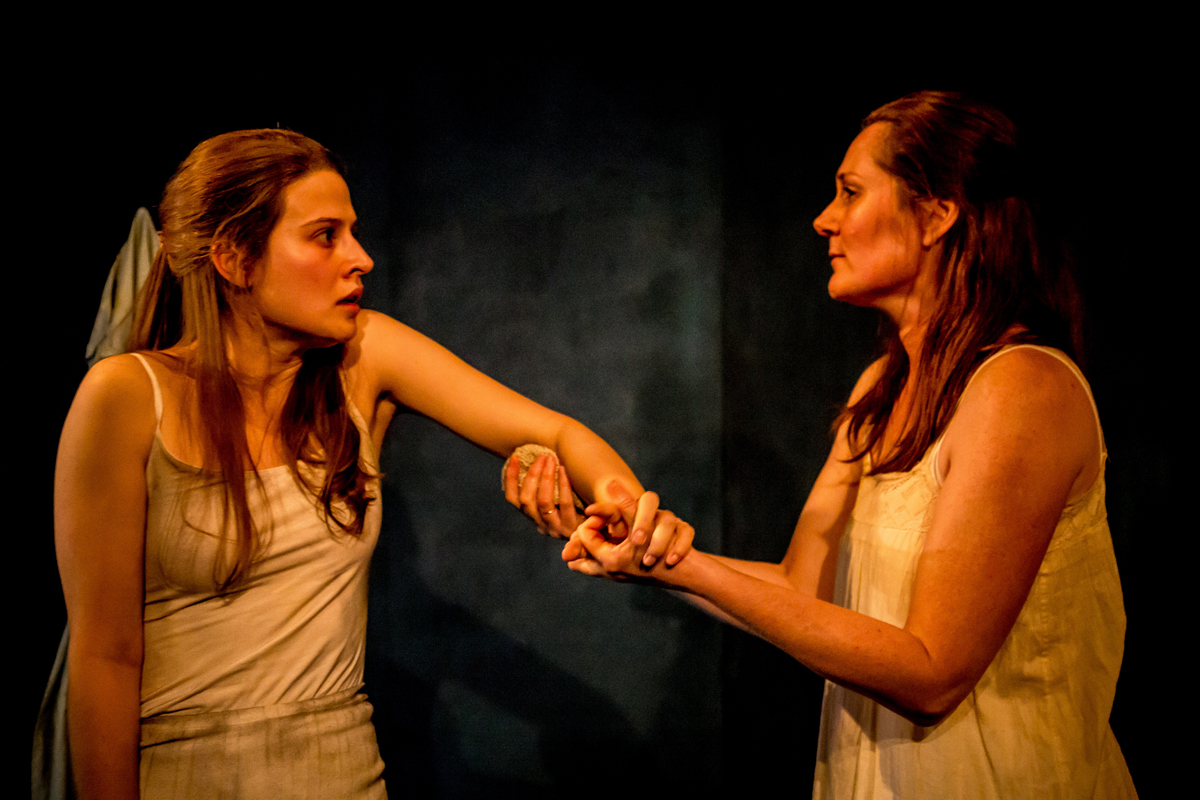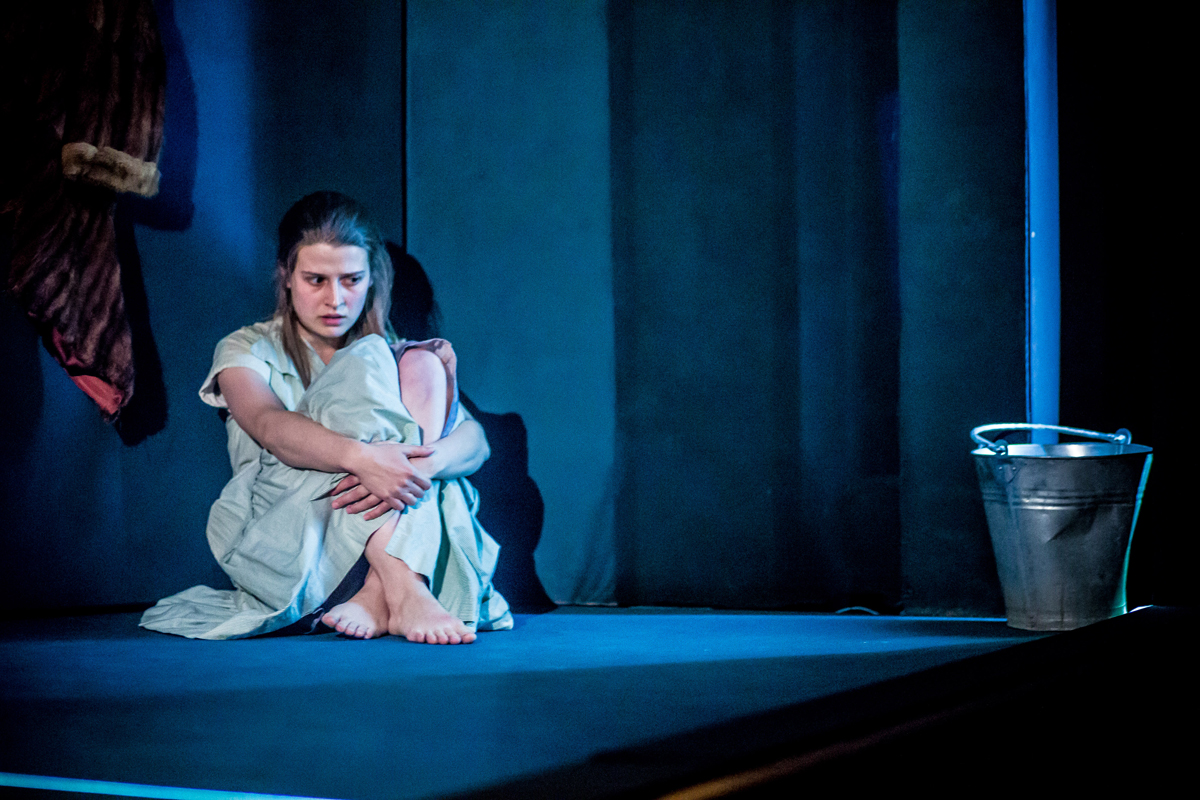 Extraordinary stories continue to come out of the Holocaust. And writers continue to explore how human nature is pushed to its limits through the extraordinary circumstances of the Shoah.
Extraordinary stories continue to come out of the Holocaust. And writers continue to explore how human nature is pushed to its limits through the extraordinary circumstances of the Shoah.
Writer Cordelia O’Neill sets her play in 1945. Her protagonists, Jew and Nazi, appear to the audience as interviewees of the Allied forces. Isabella is a Jewish ballerina, interned in a concentration camp; like the well-documented real-life examples where musicians were corralled into playing for camp officials, she is ordered to dance at a party thrown by Annie, wife of the camp commandant, Fredrick. Their lives become not only intertwined, but actually interchanged (almost like Mark Twain’s The Prince and the Pauper, in which the future Edward VI, Henry VIII’s little son, swaps lives with a street urchin), so that they actually change places, as Annie sees Fredrick attracted to Isabella, who begins to see Fredrick – himself disillusioned with the war – as a man she could love.
O'Neill has imagined a nightmarishly Kafkaesque situation, which she handles with an extraordinary subtlety and delicacy, making it all the more unsettling. For the two women speak not just for themselves but for Fredrick and interchange their personalities on a seesaw of power and influence over each other and over Fredrick, as they try to understand, influence and change their own plight – their own reality and indeed their own pasts. There are vivid memories of Isabella’s childhood, family and life as a dancer; of Annie’s meeting with Fredrick, how dependent she is on his love, her increasing isolation, even from her children, in the role imposed on her as an officer’s wife.
I guess you could call this a 'woman's story' and director Kate Budgen gets beautifully nuanced performances from Emma Paetz as Isabella and Ruth Gemmell as Annie. Paetz shows all the contrasting delicacy and steely resolve and discipline, even ruthlessness, necessary to become a leading ballerina – and to survive, even flourish in a concentration camp. Gemmell makes the repressed, damaged Annie sympathetic. Extraordinarily hers is the cup that is half empty, Isabella’s half full, as they recall intimate moments with Fredrick, the mistress remembering tenderness, affection; the wife anger and impatience.
Composer/musician Elliott Rennie’s plangent live cello music underscores the whole and helps the constantly shifting balance on Camilla Clarke’s eerie set – truly a black box intersected with a jagged light (courtesy of Sarah Radman). He and his cello make an extra physical presence, at once dividing and uniting the women. And Movement Director Lucy Cullingford works equally subtly with the pair, somehow making their movements seamless and complementary, just as their words are, without them actually connecting physically. O’Neill consulted survivors and it shows, for her imagined story has real authenticity and dramatic power.
By Judi Herman
Photos by Jack Sain
Click here to listen to Judi Herman's interview with Cordelia O'Neill on JR OutLoud.
No Place for a Woman runs until Saturday 27 May. 7.45pm (Tue-Sat), 3pm (Wed & Sat only). £15, £12 concs. Theatre 503, SW11 3BW. 020 7978 7040. www.theatre503.com


